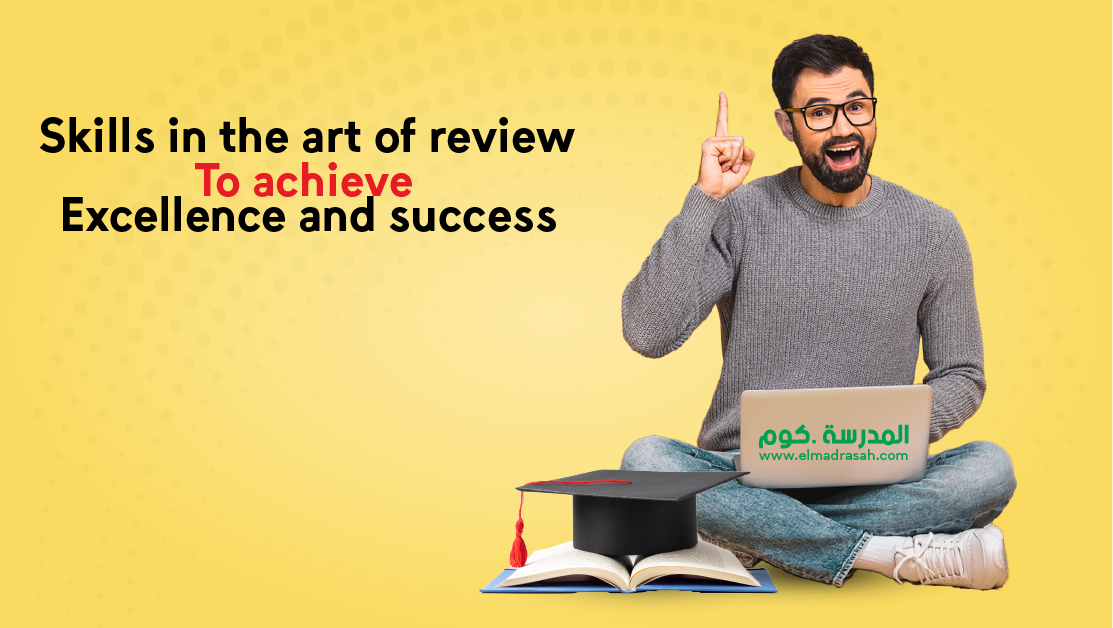
Reviewing might be difficult, especially if you’ve never done it before, but with the correct knowledge and abilities, you can master the craft of reviewing and utilize it to succeed and stand out. We’ll discuss the fundamental auditing abilities required to become a master reviewer in this essay.
The value of review
Reviewing is a crucial ability for success in any industry because it can improve a person’s performance.
Many advantages are gained through the review, including:
- Increase your knowledge, abilities, comprehension, and even attitude.
- Aid in seeing errors, overcoming flaws, and building on achievements.
- Additionally, it fosters the growth of analytical and problem-solving abilities.
- It’s a terrific technique to check if the subject is properly grasped and to get ready for exams and assessments.
- Goal-setting, goal-focus, and organization are all aided by review.
- Additionally, it can aid in boosting confidence, self-awareness, and motivation.
With all these benefits, revision techniques have become one of the fundamentals for both personal and professional success.
When will the review be profitable?
Any learning process should include revision because it is beneficial in the long term.
Before going on to the next concept or idea, it enables pupils to go back and make sure they thoroughly comprehend the previous one.
When done consistently and completely, it not only guarantees that the student masters the subject but also aids in their ability to remember the knowledge for a longer amount of time.
Additionally, by actively participating in the content in this way, students get greater assurance in their comprehension, enabling them to proceed more quickly.
Students can make sure that their knowledge is accurate and current by regularly revising it.
How should pupils appropriately review?
Although mastering revision techniques is crucial for student progress and excellence, getting started can be challenging.
The goal is to have a thorough and organized review procedure, to achieve this, divide the material into small portions, establish realistic deadlines and goals for each activity, and concentrate on the most crucial information first.
Students should be aware of their individual learning preferences and styles in order to ensure optimal efficiency and effectiveness, for instance:
- While some students might discover that reading and rereading the information is the most effective method of revision, others could choose to write summaries or make visual representations.
- It’s crucial to test out various tactics to determine which one suits you the best.
- Active learning strategies can be used in your review process as well.
Active learning involves interacting with the subject matter to improve retention and comprehension.
Asking questions, taking notes, summarizing the information, or making flashcards are a few examples of active learning strategies.
Students can better recall and understand the subject by actively participating in the class, which improves performance on exams.
- Additionally, it’s critical to maintain organization throughout the review process.
Students can stay on task and motivated by keeping track of their work and creating attainable goals.
Students can make sure they spend enough time and effort on their studies by developing a study schedule and blocking off time for revision.
- Finally, it’s critical to be adaptable and willing to experiment with new approaches.
Students that are open to new concepts and techniques can discover revising techniques that work best for their particular learning preferences.
Materials that students use as a starting point for review
It is crucial that the student has access to their favorite materials for revision.
The availability of textbooks, notes, and other tools that can aid students in their understanding of the topic is another aspect of the review process.
The learner will benefit from having access to various sources of favored material when revising and it may also help him understand the material better.
It is critical to recognise that every student will take a variety of disciplines, making it crucial to identify the subjects that each student finds most enjoyable.
Additionally, having a reliable source of information might aid students in rapidly and successfully revising their work.
To-do list: How? How significant is it, too?
The process of achieving success and perfection requires the use of a checklist and the development of review skills.
It serves as a reminder of what must be done and ensures that all required actions are accomplished.
Typically, a checklist has the following items:
- Having objectives.
- Discover the required information.
- Analysis of data and information.
- Arrange your notes.
- Lastly, create a summary.
Students can benefit from making a review checklist if they:
- Maintain your composure and drive throughout the review process.
- Additionally, it can assist them in prioritizing their duties and breaking the task down into manageable parts.
- Students may concentrate on one step at a time, which also helps to lower stress and anxiety.
- Additionally, it helps ensure that students do not overlook any crucial particulars while revising.
- They can gauge their progress using the checklist.
Students can track their accomplishments and pinpoint areas that require improvement by keeping track of what has been done and what needs to be done, this can support their goal-setting and motivation.
Obstacles make the review mechanism less effective
When it comes to reviewing, there are a variety of challenges that may hinder skill proficiency, one of these challenges is:
- A lack of motivation
When attempting to review a substantial amount of content, it is simple to become bored or sidetracked.
It can be challenging to maintain concentration on the current activity if you lack a feeling of purpose or an inner motivation to study.
To ensure the success of the review, it is crucial to remain motivated and have a plan in place.
- Time is another crucial element
The information won’t be completely understood if there isn’t enough time to review it thoroughly.
It is crucial to allocate specific time for the evaluation and to adhere to this plan. To ensure the review’s success, priorities must be established and time must be set aside.
- Finally, a barrier may be a lack of regulation
It can be challenging to remain on track and review materials effectively without a system in place to keep track of the materials and subjects to be covered.
It is challenging to succeed and improve at revision skills without the right motivation, time management, and organization.
When getting ready to evaluate documents, it’s critical to make sure that these considerations are made.
The review procedure can be fruitful and gratifying with a little work and devotion.















